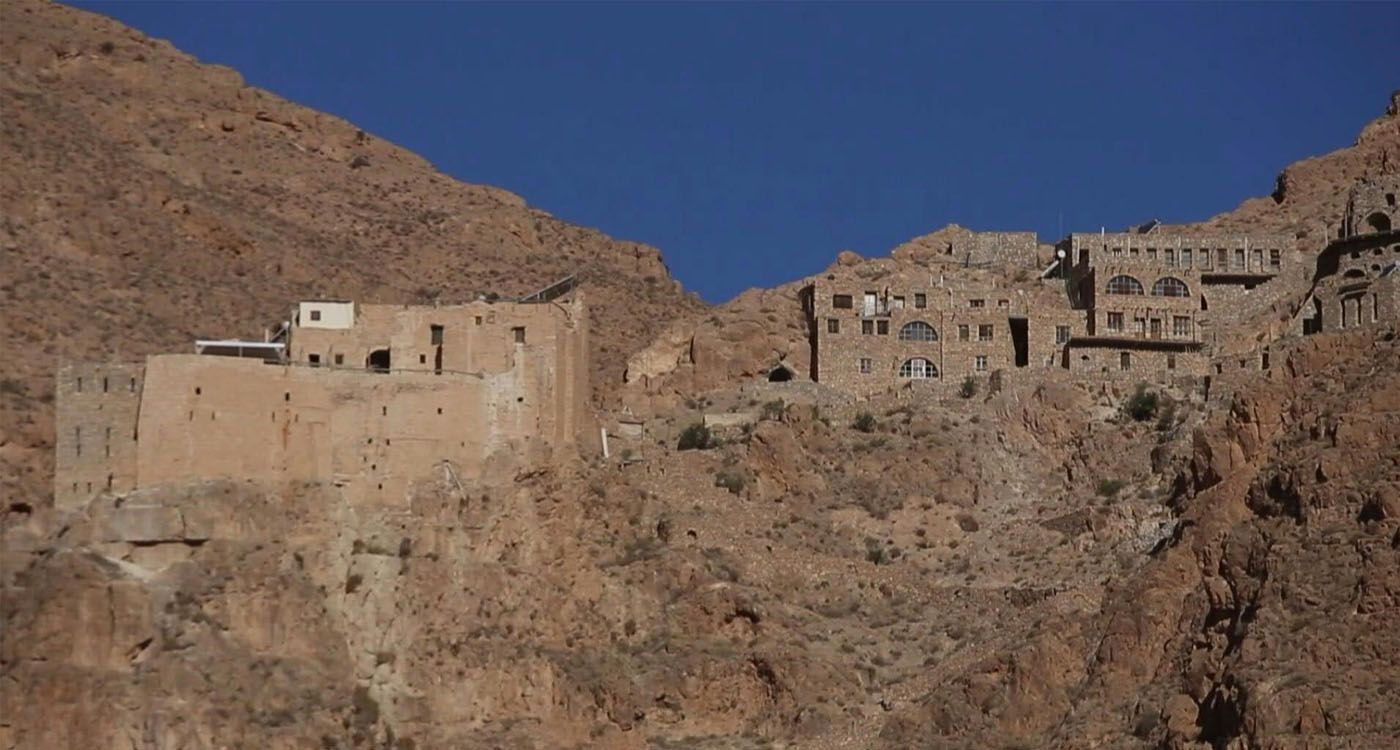- Home
- Middle East
- Eastern Christians: The Last Keepers of a Legacy

©YOUSSEF KARWASHAN/AFPTV/AFP
A suicide bombing, this time inside a Damascus church during Sunday Mass. Twenty-five dead. The blast silenced prayer, shattered lives and shook a community already on the brink.
Eastern Christianity is dying, not in the chaos of an open warfare, but through a long, silent agony, met with the world’s indifference.
In a secularized Europe where churches are repurposed into restaurants or boutique hotels, those who express concern for Eastern Christians are quickly branded as “fascists.” Today’s political trend is to champion “visible minorities,” whose voices now carry weight at the ballot box. And next to an elected office, what weight do Eastern Christians carry? Very little, it seems.
Meanwhile, the distracted West turns away and no longer defends those who bear its own heritage. As for the Arab world, it has yet to harness its minorities as a lasting source of strength. And the powerful, both within the region and beyond, seem quite comfortable with this void.
At the beginning of the 20th century, Christians made up 10% of the population in the Middle East (Lebanon, Syria, Iraq, Jordan, Israel and the Palestinian territories). Today, they represent a mere 2.5 million of the 105 million inhabitants, just 2.3% of the population. After Iraq came the Syrian bloodletting. And after Syria, what’s next? Lebanon?
The decline over the past two decades has been staggering. According to a June 9, 2025 study by the Pew Research Center, Iraq had about 1.5 million Christians in 2003, before the war. Today, that number has plummeted to barely 150,000 to 200,000, a 90% collapse in just one generation. Exiled, killed, terrorized. Some villages on the Nineveh Plain have never been rebuilt. Others have seen their last faithful leave. These are places where silence has replaced songs and prayers. Syria is following the same tragic pattern. Before 2011, its Christian population was estimated at 1.5 million; today, it’s down to around 300,000. In neighborhoods once predominantly Christian in Aleppo, Homs and Damascus, church bells no longer ring, except to toll for the dead.
This is not simply a religious crisis. It is the disappearance of an entire chapter of humanity’s collective memory. Eastern Christians stand as direct witnesses and living custodians of original Christianity. Their disappearance is not merely a communal or confessional issue, it represents the wiping away of a universal heritage.
Syrian monasteries, Assyrian villages and Maronite liturgies are living treasures. In Mosul and Damascus, the faithful worshipped in churches far older than Europe’s cathedrals. In Maaloula, Syria, Aramaic—the language of Christ—was still spoken. In Qaraqosh, Bartella and Sadad, these communities withstood everything: invasions, persecutions, Mongols and wars. But not this era. Not indifference. Not calculated, targeted hatred.
Meanwhile, in Lebanon—the region’s last remaining Christian stronghold—many continue to hold onto the belief that it is somehow immune. As if geography alone could shield a community from the erosion of time and a deliberate exodus. In 1932, during the last official census, Christians made up 55% of the population. Today, that proportion has fallen to around 35%, due to lower birth rates and massive emigration. This figure does not include the 2.5 million Syrian displaced persons, the vast majority of whom are Muslim.
What is unfolding before our eyes is the erasure of the living roots of Christianity. The Gospels were first whispered in these languages, on this land. The martyrs of the early centuries, the Church Fathers, the desert monasteries suspended in time. Now, they exist only as crumbling ruins or fading memories.
A few voices remain: a priest in Damascus, a nun in Homs, a bishop in Zahle and a handful of families still standing in Erbil. They are the last guardians, holding on not out of naivety, but out of faithfulness. Alone, they embody a history spanning two millennia. But for how much longer?
As the echoes of bombs fade from the church in Damascus, an undeniable truth emerges: if nothing changes, Eastern Christians will soon be consigned to legend, like the Nestorians of Asia or the Cathars of Occitania. The Church of Mar Elias will become yet another stone on the grave of this heritage.
Read more




Comments